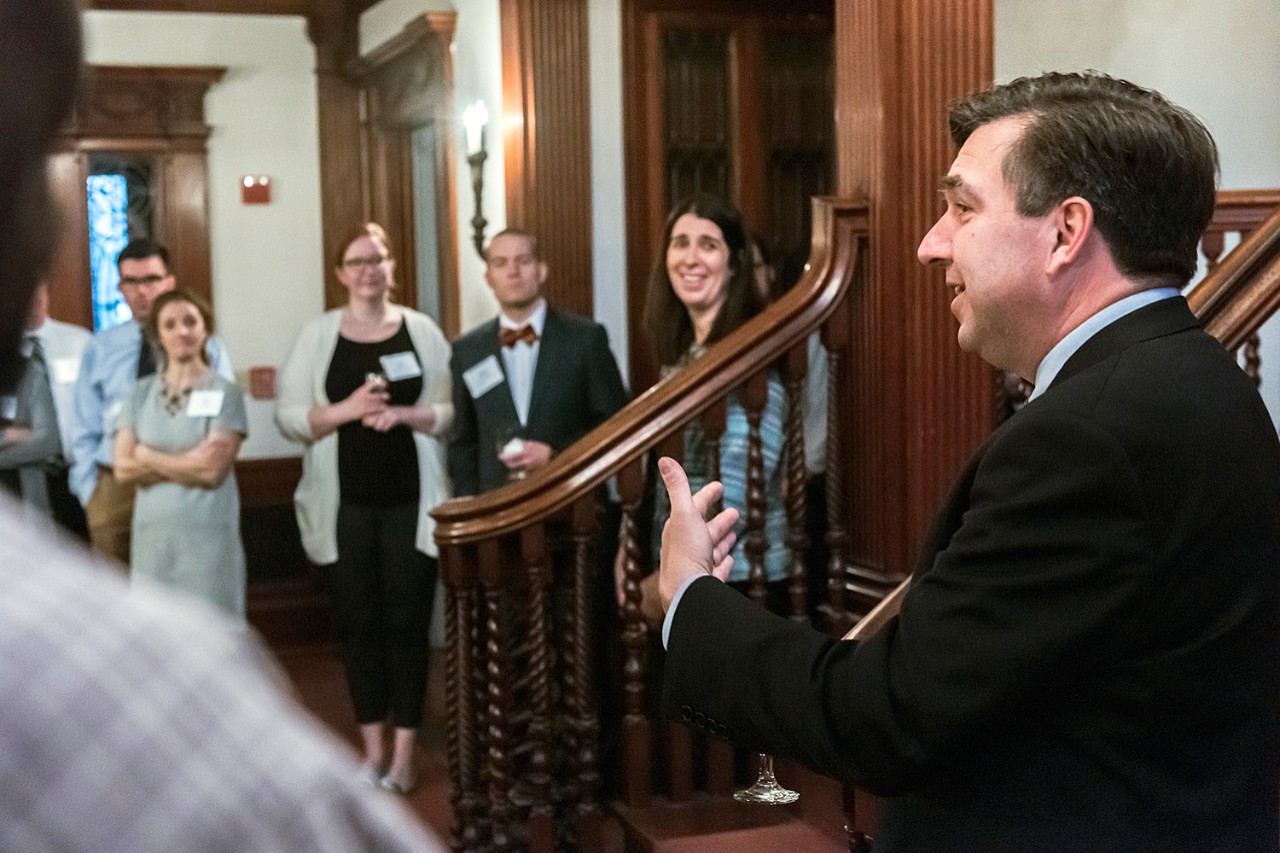The University Council on Learning Outcomes has been formed to connect the work of academic departments and the divisions of Student Affairs and University Mission and Ministry in a broad initiative to continuously improve teaching and learning and the overall student experience.

The council is the newest phase in a University-wide effort to expand the use of learning outcomes, an increasingly important focus of accrediting agencies and other stakeholders in higher education.
Consisting of more than 50 members drawn from faculty and staff, the council includes eight internal committees and is structured to foster discussions and planning around learning outcomes, their measurement, and the progress of their use in the schools and colleges, Student Affairs and Mission and Ministry.
Provost and Dean of Faculties David Quigley said the learning outcomes approach is about moving beyond student grades to evaluate teaching and learning. The approach seeks to clarify expectations, the competencies students are expected to develop, and the discipline-specific knowledge a major or program will deliver.
“This all helps us to talk about what is important to teaching and learning and what kind of impact we are making in the work we do,” said Quigley.
Analyzing data is one aspect, but so is the process of examining the broader student experience. Quigley pointed to several departments’ major seminars, which have been used to gauge student progress toward core learning goals and competencies.
“The council can help us encourage conversations across campus about best practices in each school and college,” said Quigley. “It can encourage faculty to share what they hear from their peers at other universities and help us develop meaningful collaborations between academic affairs, Student Affairs and Mission and Ministry to tie together our work in student formation and improving undergraduate, graduate and professional education.”
Special Assistant to the President Robert R. Newton, who co-chairs the council with Director of Assessment and Accreditation Jessica Greene, said, “The underlying premise of the learning outcomes approach is that if faculty define what students should know or be able to do as a result of the course rather than simply describe the material the course will cover, both faculty and students will have sharper understanding of what they are trying to accomplish.”
Ten years ago, BC developed a plan to assess student learning outcomes at the request of the New England Association of Schools and Colleges Commission on Institutions of Higher Education. As part of BC’s successful 2017 NEASC re-accreditation, the University showed the results of this effort. The council is intended to continue that work.
The council includes committees focused on learning outcomes in undergraduate and graduate education, academic affairs, Mission and Ministry and Student Affairs.
In addition to promoting and monitoring progress in those areas, special committees will address specific issues:
- Faculty/staff development on learning outcomes
- University-wide coordination, targeted reporting, and communication strategy
- Analysis of the Boston College Undergraduate Experience Questionnaire and other data sources
- Definition and measurement of student formation outcomes
Greene said the council is the latest piece in BC’s long-standing commitment to institutional self-study and assessment.
“Boston College has consistently worked to reflect on our efforts and identify areas for growth and it is the goal of the council to help support these efforts and facilitate connections and collaborations across units with the aim being continuous improvement,” Greene said.
The work of the council aligns with the University Strategic Plan through its focus on student formation, specifically new initiatives to define and measure student formation, Newton said.
“We intend to use the learning outcomes approach to capitalize on the interest and energy that emerged over the past decade in focusing on learning outcomes because of the external expectations of our accreditors,” said Newton. “Now we will use the learning outcomes approach primarily to improve student experiences University-wide.”
Ed Hayward | University Communications



